This is a list of notable events in music that took place in the year 1936.

Buddy Ebsen, also known as Frank "Buddy" Ebsen, was an American actor and dancer, whose career spanned seven decades. One of his most famous roles was as Jed Clampett in the CBS television sitcom The Beverly Hillbillies (1962–1971); afterwards he starred as the title character in the television detective drama Barnaby Jones (1973–1980).

Jane Darwell was an American actress of stage, film, and television. With appearances in more than 100 major movies spanning half a century, Darwell is perhaps best remembered for her poignant portrayal of the matriarch and leader of the Joad family in the film adaptation of John Steinbeck's The Grapes of Wrath, for which she received the Academy Award for Best Supporting Actress. She has a star on the Hollywood Walk of Fame.

Captain January is an 1890 children's novel, about a lighthouse keeper and his adopted daughter, written by Laura E. Richards. First published by Estes & Lauriat in Boston, it was also published in Montreal, Quebec, Canada, and London, England. There have been two film adaptions of the novel, the 1924 silent film Captain January, starring Baby Peggy and the 1936 musical film Captain January, starring Shirley Temple.

The Little Princess is a 1939 American drama film directed by Walter Lang. The screenplay by Ethel Hill and Walter Ferris is loosely based on the 1905 novel A Little Princess by Frances Hodgson Burnett. The film was the first Shirley Temple movie to be filmed completely in Technicolor. It was also her last major success as a child star. This film was the third of three in which Shirley Temple and Cesar Romero appeared together, second was Wee Willie Winkie (1937) and Ali Baba Goes to Town (1937).
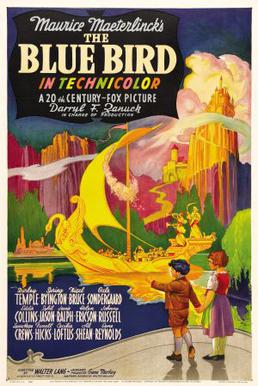
The Blue Bird is a 1940 American fantasy film directed by Walter Lang. The screenplay by Walter Bullock was adapted from the 1908 play of the same name by Maurice Maeterlinck. Intended as 20th Century Fox's answer to MGM's The Wizard of Oz, which had been released the previous year, it was filmed in Technicolor and tells the story of a disagreeable young girl and her search for happiness.

Sara Haden was an American actress of the 1930s through the 1950s and in television into the mid-1960s. She may be best remembered for appearing as Aunt Milly Forrest in 14 of the 16 entries in the Metro-Goldwyn-Mayer Andy Hardy film series.

Slim Summerville was an American film actor and director best known for his work in comedies.

The Littlest Rebel is a 1935 American musical drama film directed by David Butler. The screenplay by Edwin J. Burke was adapted from a play of the same name by Edward Peple.
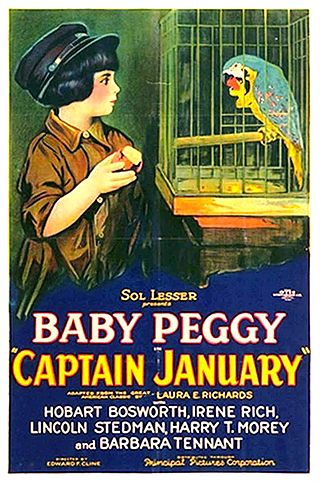
Captain January is a 1924 American silent drama film directed by Edward F. Cline and featuring child star Baby Peggy. It was the first screen adaptation of the 1890 children's book Captain January by Laura E. Richards. The other adaptation of the novel was the film Captain January (1936) with Shirley Temple.

Kathryn Card was an American radio, television, and film actress who may be best remembered for her role as Mrs. McGillicuddy, Lucy's mother on I Love Lucy.

Helen Westley was an American character actress of stage and screen

Stowaway is a 1936 American musical drama film directed by William A. Seiter. The screenplay by William M. Conselman, Nat Perrin, and Arthur Sheekman is based on a story by Samuel G. Engel. The film is about a young orphan called "Ching Ching" who meets wealthy playboy Tommy Randall in Shanghai and then accidentally stows away on the ocean liner he is travelling on. The film was hugely successful, and is available on videocassette and DVD.

Dimples is a 1936 American musical drama film directed by William A. Seiter. The screenplay was written by Nat Perrin and Arthur Sheekman. The film was panned by the critics. Videocassette and DVD versions of the film were available in 2009.
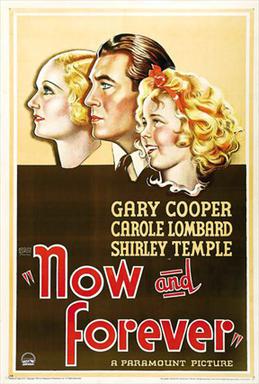
Now and Forever is a 1934 American drama film directed by Henry Hathaway. The screenplay by Vincent Lawrence and Sylvia Thalberg was based on the story "Honor Bright" by Jack Kirkland and Melville Baker. The film stars Gary Cooper, Carole Lombard, and Shirley Temple in a story about a small-time swindler going straight for his child's sake. Temple sang "The World Owes Me a Living". The film was critically well received. Temple adored Cooper, who nicknamed her 'Wigglebritches'. This is the only film in which Lombard and Temple appeared together.
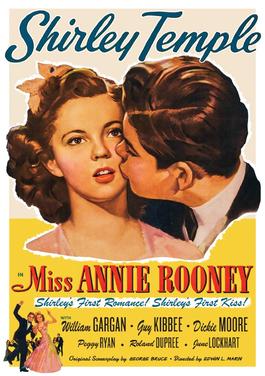
Miss Annie Rooney is a 1942 American drama film directed by Edwin L. Marin. The screenplay by George Bruce has some similarities to the silent film, Little Annie Rooney starring Mary Pickford, but otherwise, the films are unrelated. Miss Annie Rooney is about a teenager from a humble background who falls in love with a rich high school boy. She is snubbed by his social set, but, when her father invents a better rubber synthetic substitute, her prestige rises. Notable as the film in which Shirley Temple received her first on-screen kiss, and Moore said it was his first kiss ever. The film was panned.
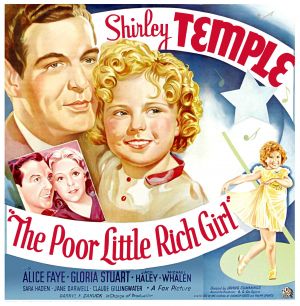
Poor Little Rich Girl, advertised as The Poor Little Rich Girl, is a 1936 American musical film directed by Irving Cummings and starring Shirley Temple, Alice Faye and Jack Haley. The screenplay by Sam Hellman, Gladys Lehman, and Harry Tugend was based on stories by Eleanor Gates and Ralph Spence, and the 1917 Mary Pickford vehicle of the same name. The film focuses on a child (Temple) neglected by her rich and busy father. She meets two vaudeville performers and becomes a radio singing star. The film received a lukewarm critical reception from The New York Times.

The Witness for the Defense is a 1919 American silent drama film directed by George Fitzmaurice and starring Elsie Ferguson, Warner Oland, and Wyndham Standing.

Can This Be Dixie? is a 1936 American musical comedy film directed by George Marshall and featuring child star Jane Withers along with Slim Summerville and Helen Wood.
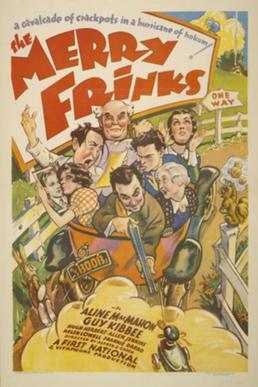
The Merry Frinks is a 1934 American comedy film directed by Alfred E. Green and starring Aline MacMahon, Guy Kibbee and Hugh Herbert. It is also known by the alternative title of Happy Family.




















